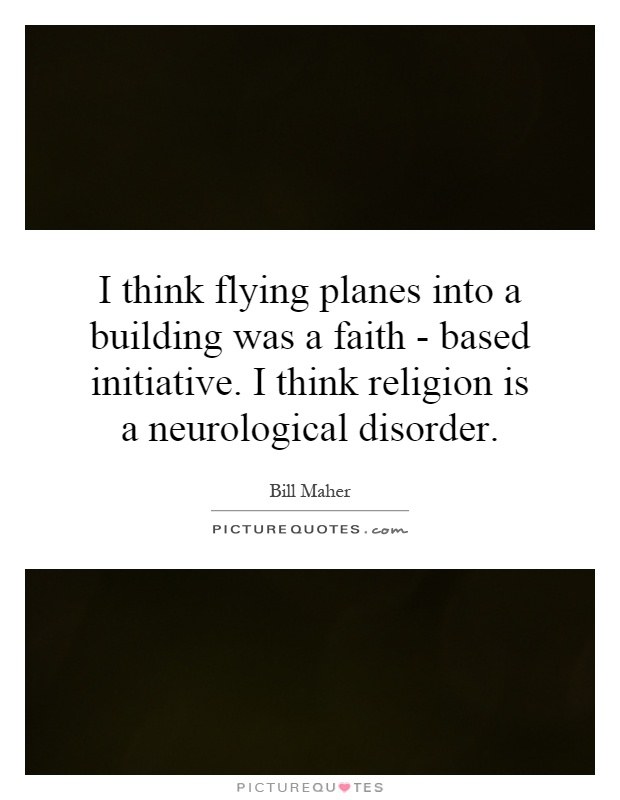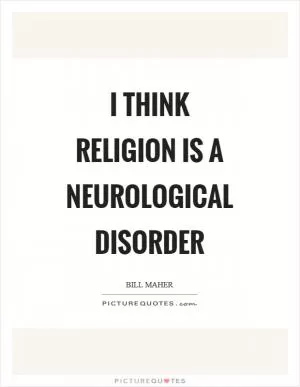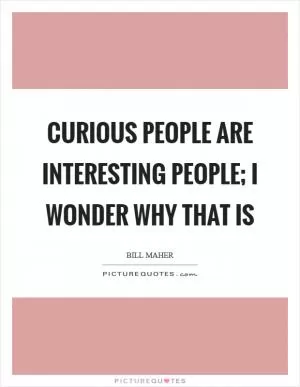I think flying planes into a building was a faith - based initiative. I think religion is a neurological disorder

I think flying planes into a building was a faith - based initiative. I think religion is a neurological disorder
Bill Maher, a well-known comedian and political commentator, has never been one to shy away from controversial statements. His bold and often provocative opinions have sparked debate and discussion on a wide range of topics, including religion. Maher has been vocal in his criticism of organized religion, often referring to it as a "neurological disorder" and questioning the role of faith in shaping world events.One of Maher's most infamous statements came in the aftermath of the September 11th terrorist attacks, when he suggested that the hijackers who flew planes into the World Trade Center and the Pentagon did so as a result of their religious beliefs. Maher argued that the attackers were motivated by a blind faith in their religion, which led them to commit such heinous acts in the name of their beliefs. In Maher's view, this extreme form of religious devotion can be seen as a form of mental illness, a neurological disorder that clouds judgment and leads individuals to commit acts of violence in the name of their faith.
While Maher's comments may be seen as controversial and inflammatory, they do raise important questions about the role of religion in shaping human behavior. Many critics of organized religion argue that faith can be a powerful force for both good and evil, depending on how it is interpreted and practiced. In the case of the September 11th attacks, Maher's assertion that the hijackers were driven by a fanatical devotion to their religion is a stark reminder of the dangers of extremism and the potential for religion to be used as a justification for violence.
Maher's views on religion as a neurological disorder may be seen as extreme by some, but they do highlight the need for a critical examination of the role of faith in shaping human behavior. While religion can provide comfort and guidance to many, it can also be used as a tool for manipulation and control. By questioning the influence of religion on individuals and society as a whole, Maher challenges us to think critically about the impact of faith on our lives and the world around us.












 Friendship Quotes
Friendship Quotes Love Quotes
Love Quotes Life Quotes
Life Quotes Funny Quotes
Funny Quotes Motivational Quotes
Motivational Quotes Inspirational Quotes
Inspirational Quotes